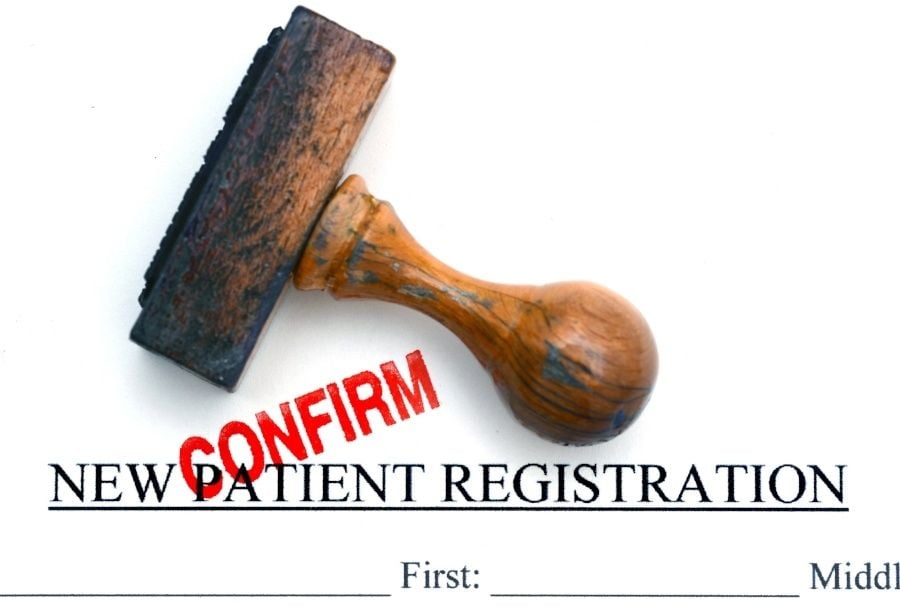
For most dental practices, long-term digital marketing success revolves around search engine optimization (SEO). In large cities, the digital landscape for dentists can be quite competitive. Online ads see their prices driven up by increased competition.
Social media is a reliable way to connect with a small audience, but how many people are really on the edge of their seat waiting for the next Tweet from their dentist? SEO provides a consistent stream of new clients and revenue to dental practices.
SEO is at the heart of any effective inbound marketing strategy. Online search engines are where the majority of people turn when making important decisions, and choosing a dental care provider is a chief concern for families and people with dental health issues.
SEO is a long-term strategy, with the full benefits not being fully realized until months or years after you begin. It takes time to show search engines like Google that you are a reliable practice.
But, with a well-designed strategy, you can see the trickle of new patient leads begin to trickle in after just a few short months.
It takes time to get to the first page of Google’s search results, and longer to get into the top 3 positions, which is where most of the visitors come from. Take a look at this image:
Source: Blue Corona
As a practice owner, the inner workings of SEO probably sounds like a foreign language to you. That’s alright, it certainly isn’t in your wheelhouse.
But it is important that you understand what a profound role SEO plays in the digital success of your practice, so that you can work with a digital marketing partner that helps you to take full advantage.
What is Local SEO for Dental Practices?
Search engine optimization is the practice of optimizing your website for appearing in search engines with the goal of ranking highly for valuable keywords that are related to your business.
For instance, if you owned a dental practice in New York City, the #1 position in Google for the keyword “Dentist New York City” would be highly coveted, resulting in hundreds of valuable leads each month.
SEO differs from paid advertising in that the results are completely organic.
Yes, you do still have to make an investment on the front-end to optimize your website and create the articles and content that will rank for relevant keywords, but when you reach high ranking positions, the traffic that flows to your website is cost-free.
The work that goes into optimizing your website will improve your standing for years to come.
There are many factors that Google and other search engines take into account when determining where your website should be ranked for certain keywords.
These factors are designed to help the search engine rank websites that are highly relevant to what the users are searching for and determining whether or not the company itself is trustworthy based on their online footprint.
It is an imperfect system, but one that has greatly improved the quality of search results for users over the years.
Some of the factors that Google takes into account for SEO include:
- Content relevance. Google scans your pages to determine whether or not your page is relevant to the users that are searching for it. For instance, they wouldn’t want a page about pottery showing up in a search about dentistry. Google analyzes the text on the page to ensure that your website is actually providing something that is related to the search.
- Backlinks. One of the staples of SEO. A backlink is when another website links to your website, which Google views as a vote of confidence. The more backlinks your website has, the more trustworthy it is in general. Not all backlinks are assigned the same potency, either. A link to your website from the New York Times is worth much more than an incoming link from Joe Schmoe’s blog. For a dental practice, this includes things like being listed in popular directories.
- Bounce rate. Google runs tests on their search results to determine which listings are the most useful to their audience. Bounce rate measures how many people click on your website and then immediately hit the “back” button. If a lot of people are coming to your website and leaving immediately, this is a sign that your content might not be in line with what users are looking for and your website may be pushed down in the rankings for that keyword as a result.
- Technical considerations. There are also a whole host of technical considerations that Google takes into account when ranking websites. There are certain coding best practices that they expect to be followed, as well as things like website loading speed which can affect your search engine rankings. We specialize in helping dental practices navigate and improve upon these technical ranking factors.
These are just a small list of the dozens of factors that Google’s algorithm takes into account when ranking websites for specific keywords.
While it is impossible to ensure that every factor is taken into account, having a well-rounded strategy ensures that a majority of them are, putting your dental practice in a good position for long-term success in search engines.
Why SEO for Dental Practices Is Essential
SEO should be a part of any long-term digital marketing strategy. It is a core concept of inbound marketing, the strategy that RiseFuel uses to help dental practices find new customers online.
While digital PPC advertising is also an essential piece of the puzzle, SEO stands head and shoulders above other options because once you reach the top rankings for valuable keywords, they provide a consistent stream of high-value patients without continually having to shell out new advertising dollars.
But beyond the measurable returns that SEO generates, it is just a good long-term strategy for brand awareness. By continually positioning yourself across the top search results for your local city, people within that city with gain familiarity with your company.
They may not be willing to commit to a new dentist now, but a year from now when they are ready, they will recognize your company and be more willing to reach out.
In its truest form, SEO is all about creating a web presence that makes your company website easily findable. When people look for a new dentist in your city, you want your company to be the one that is recommended to them above all competition.
SEO for dental practices is often a long and arduous process that can take months or years to fully realize, but once you reach those lofty search positions for valuable keywords, all of the effort will pay for itself several times over.
Basic SEO Planning for Dental Practices
Here at RiseFuel, we make SEO for dental practices a critical part of any digital marketing strategy that we put together. We pair it with other strategies like social media marketing and paid advertising to deliver a well-rounded inbound strategy that begins generating new patients early in our engagement.
When we put together an SEO plan for dental practices, each plan contains a few elements that help us to evaluate your current position and put plans in place to improve your search optimization.
A Detailed SEO Audit
Before we can put together an SEO plan for your dental practice, we have to review your website and identify where the current gaps lie.
All new engagements start with a detailed SEO audit that looks at all of the pages on your website, identifies new opportunities that you might be missing out on, and lays the foundation for a solid plan for moving forward.
Develop a Keyword Strategy
Without targeting the right keywords, SEO doesn’t do you much good. We’ll identify keywords that will provide a consistent flow of new patients to your business, and identify the steps that need to be taken to put us on the road to ranking for those keywords.
Choosing the right keywords to target is perhaps the most critical piece of every SEO strategy.
Analyze Competitors
To set realistic expectations for our engagement, we’ll need to take a look at the competition. Strong competition will mean that it will take longer to rank for valuable keywords, while weaker competition means that you can expect results to come more quickly.
By analyzing your competition we can see what they are doing and incorporate the tactics that are driving their results into your own strategy.
Implement Strategies
RiseFuel will handle your entire SEO operation. We don’t just provide you with strategic planning, we actually execute the strategies for you.
Over time, we’ll continue post new content to your website while optimizing old pages for relevant keywords that we discover in our keyword research.
SEO is a long-term strategy, so we will continually be improving upon your SEO foundations and targeting new profitable keywords as time goes on.
Track Progress and Iterate
SEO work doesn’t end when you reach the top position. There will always be competitors that are looking to take your spot.
We’ll track your progress and find new strategies that can help you to keep the positions you’ve earned while improving your ranking in other keywords as well.
Because the factors that Google takes into account when ranking websites are always changing, we alter our strategies to reflect the newest changes in Google’s search ranking algorithm.
SEO is Essential for Long-Term Success
Search engine optimization is the foundation of any reliable long-term digital marketing strategy.
We work closely with clients to analyze the competitive landscape in your local area, put together a reliable plan that drives results, and execute that plan.
The longer that you put SEO off, the harder it will become to rank for your desired keywords and secure a healthy standing in search.
While SEO is part of a larger digital strategy that we deploy for each client, it plays a key role in every engagement we take on.













